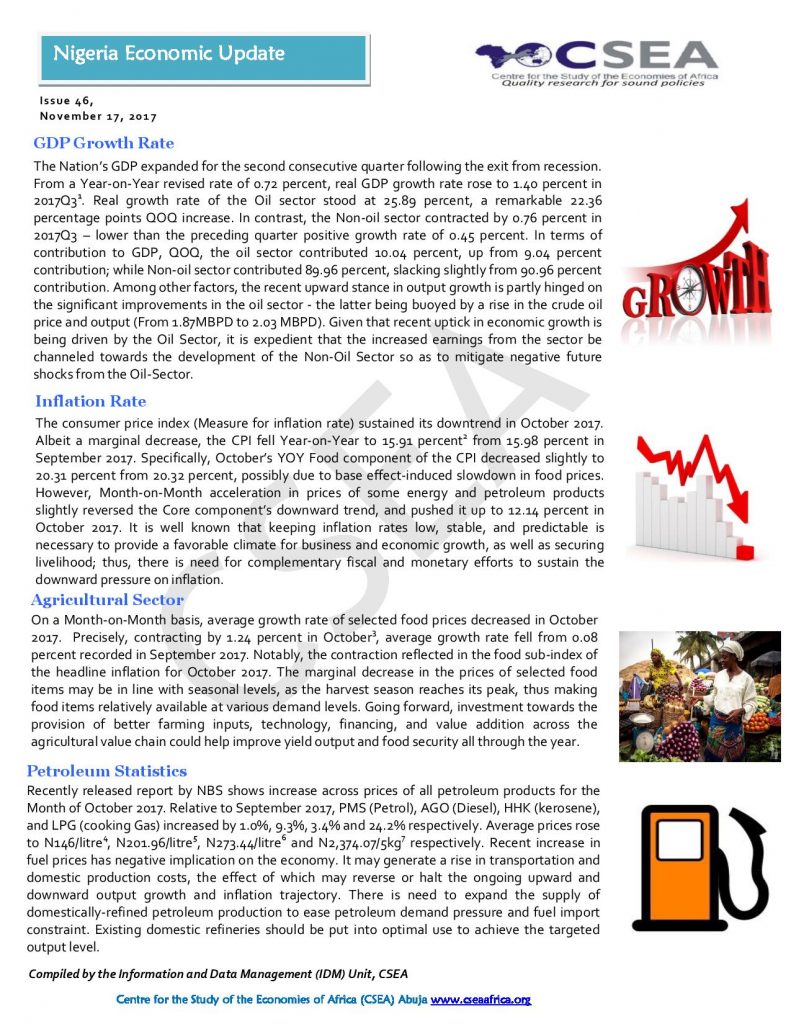Macroeconomic Report & Economic Updates

December 12, 2017
Nigeria Economic Update (Issue 46)
On a Month-on-Month basis, average growth rate of selected food prices decreased in October 2017. Precisely, contracting by 1.24 percent in October, average growth rate fell from 0.08 percent recorded in September 2017. Notably, the contraction reflected in the food sub-index of the headline inflation for October 2017. The marginal decrease in the prices of selected food items may be in line with seasonal levels, as the harvest season reaches its peak, thus making food items relatively available at various demand levels. Going forward, investment towards the provision of better farming inputs, technology, financing, and value addition across the agricultural value chain could help improve yield output and food security all through the year.
